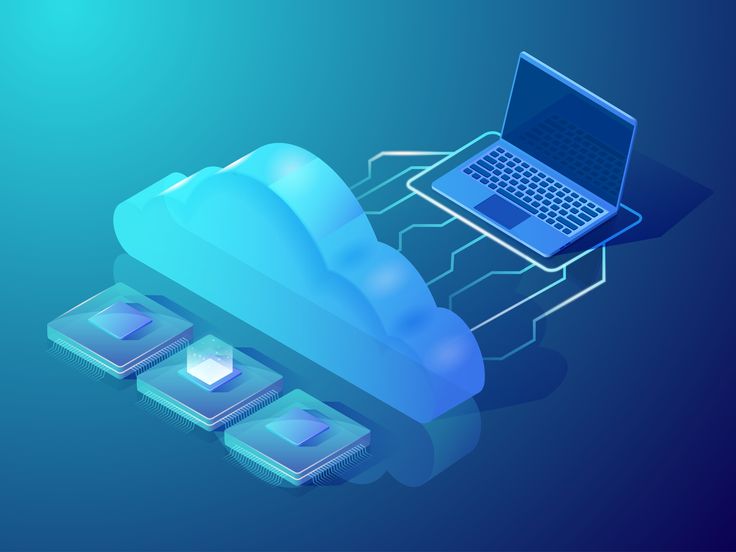Cloud computing is revolutionizing the way businesses and individuals access, store, and manage data. From startups to Fortune 500 companies, the cloud is transforming operations by offering scalable, flexible, and cost-effective solutions. Whether you’re looking to develop cloud-based applications or work in cloud infrastructure, finding the right cloud computing course can set the foundation for a rewarding career. This guide will help you navigate your options and choose the best course to start your cloud computing journey.
1. Understand Your Cloud Computing Goals
Cloud computing is a broad field, and your learning path will depend on what you want to accomplish:
- Cloud Developer: If you want to build applications and services in the cloud, focus on courses that teach cloud-based programming, containerization (Docker, Kubernetes), and serverless architecture.
- Cloud Architect: For those interested in designing and managing scalable cloud infrastructures, look for courses that cover cloud platforms (AWS, Azure, Google Cloud), cloud security, and cost optimization strategies.
- Cloud Operations: If you’re interested in cloud operations, DevOps, and automation, focus on courses that teach cloud system administration, infrastructure management, and tools like Terraform or Ansible.
- Cloud Security: Security is a key aspect of cloud computing, so if you’re looking to specialize in cloud security, choose a course that focuses on data protection, encryption, and securing cloud environments.
2. Core Topics in a Good Cloud Computing Course
A solid cloud computing course should cover foundational topics to build a strong understanding of the field:
- Cloud Fundamentals: Introduction to cloud computing, different deployment models (public, private, hybrid), and cloud service models (IaaS, PaaS, SaaS).
- Major Cloud Platforms: Learning major platforms like Amazon Web Services (AWS), Microsoft Azure, and Google Cloud is essential. Courses should teach how to deploy and manage resources on these platforms.
- Virtualization: Virtual machines (VMs), containers, and virtualization techniques are central to cloud environments. You should gain familiarity with tools like VMware, Docker, and Kubernetes.
- Cloud Security: Data protection, encryption, identity and access management (IAM), and security best practices are vital to secure cloud environments.
- Cloud Deployment and Automation: Learn about automating cloud processes and deployment pipelines using tools like Terraform, Jenkins, and CI/CD principles.
- Cost Management and Optimization: A good cloud course should cover how to efficiently manage cloud costs, optimize resource usage, and implement cost-saving practices.
3. Choose Between Self-Paced and Instructor-Led Courses
- Self-Paced: If you prefer flexibility and want to learn at your own speed, self-paced courses are ideal. These courses allow you to manage your schedule and access materials when it suits you.
- Instructor-Led: If you need structure and live support, instructor-led courses offer more direct interaction. These courses often have deadlines, assignments, and opportunities for mentorship.
4. Hands-On Experience and Projects
Cloud computing is a practical field, and having hands-on experience is essential. Choose a course that provides practical assignments, simulations, or access to cloud platforms where you can deploy resources and create cloud-based applications. Cloud certifications from AWS, Azure, or Google Cloud often come with labs and real-world scenarios to test your skills.
5. Cloud Certifications and Career Support
Certifications from cloud providers like AWS Certified Solutions Architect, Microsoft Certified: Azure Fundamentals, or Google Cloud Certified are highly valued in the industry. Look for courses that offer certifications or prepare you for certification exams. Additionally, check if the course provides career support, such as resume reviews, job search assistance, or networking opportunities.
6. Balancing Cost with Value
Many cloud computing courses are available for free, but paid courses typically provide more detailed content, certifications, and access to mentors. Consider your budget and whether you need additional resources, such as live support or career services, which may justify the cost of a premium course.
Conclusion
Cloud computing is one of the most in-demand skills in today’s tech industry, and the right course can help you acquire the expertise needed to excel. Whether you aim to become a cloud developer, architect, or operations specialist, a strong foundation in cloud computing will unlock many career opportunities. Focus on understanding the key concepts, gaining hands-on experience, and choosing the right learning path that matches your interests and goals. With the right course, you’ll be on your way to mastering the cloud.

